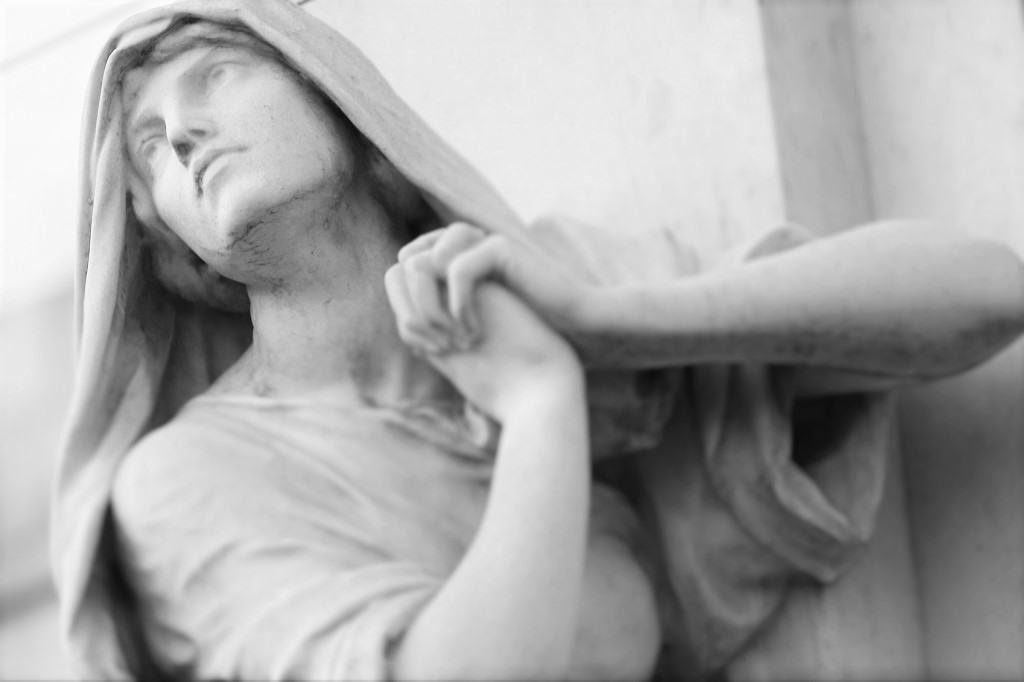Since we began this week with the Solemnity of the Assumption of the Blessed Virgin Mary, it is only fitting to explore this rich feast again, in a slightly different light. (By the way, Scott Hahn does an excellent job explaining and exploring this beautiful Solemnity.)
As we noted earlier here, this is possibly one of the oldest of the Church’s celebrations. Yet it can be a bit difficult to “wrap one’s head around,” so to speak. As anyone who has ever practiced the prayer method of Lectio Divina knows, our imaginations (grounded in prayer and gifted by God) can be a meaningful way to more deeply understand Biblical and historical events.
The author Madeleine L’Engle (best known for the classic A Wrinkle In Time) was also a gifted poet. In her lovely collection, A Cry Like A Bell, she inhabits and gives voice to various people from the Bible. In the poem, Mary speaks: from Ephesus, Mary is looking back on her life – one that surely is the most remarkable life any woman has ever led. And here, she is tired – it has been a long and tumultuous life, despite its joy. Mary reflects on her Son’s sacrificial life:
This was the sacrifice, this ultimate gift of love.
I thought once that I loved. My love was hundredfold less
than his, than the love of the wood-lice is to mine,
and even this I do not know. For has he not, or will he not
come to the wood-lice as he came to man? Does he not
give his own self to the lowing cattle, the ear of corn,
the blazing sun, the clarion moon, the drop of rain?
His compassion is infinite, his sacrifice incomprehensible,
breaking through the darkness of our loving-lack.
Oh, my son, who was and is and will be, my night draws close.
Come, true light, which taketh away the sin of the world,
and bring me home. My hour is come. Amen.
How could a Son deny His mother her greatest desire – to be reunited with her Son and Savior? In the Assumption, it is revealed that He did just that – bringing His mother (and ours) to her Heavenly home.
